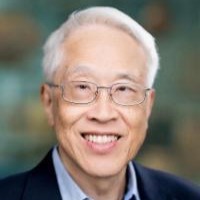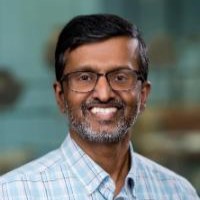Drs. Sam George and Andrew Lee, the guest editors of this issue of CSQ, conducted an interview with Rev. Yoman Man on September 23, 2020 in Chicago, Illinois, USA. Rev. Man is the Senior Pastor of Cornerstone Chinese Church.
Editors: Tell us a bit about yourself, your background, and your church in Chicago.
Yoman Man: I studied textile technologies at Hong Kong Polytechnic in the early 1970s and then went into ministry. I was trained at Evangel Theological College and became a pastor, and then the senior pastor, of a church. I served with the denomination of the Evangelical Free Church and became its first General Secretary in 1990. A major responsibility was to prepare the denomination for the future as the United Kingdom would hand over governance of Hong Kong to China in 1997. We focused on the Great Commission, and the number of churches grew from 29 to 44 in seven years and the number of believers increased by about 50%.
After 1997, I pursued my dream of further studies and came to Chicago to study at Trinity Evangelical Divinity School. After graduation I became senior pastor of the Chinese Bible Church of Oak Park which was established in 1908 by the Church of the Brethren. Then, in 1972, it became an independent church due to doctrinal differences. Today, our beliefs are similar to those of the Evangelical Free Church. Recently, we relocated to Villa Park and are now called Cornerstone Chinese Church.
Until the 1970s, we only had Cantonese ministry. However, we began to work with the English-speaking second-generation students and young adults, and as a result, we hired our first English ministry pastor in 1983. A Mandarin ministry begin in the late ’80s when many Chinese scholars and students came to America. We had our first Mandarin service in 2008 and hired our first Mandarin minister in 2009. So, our Mandarin ministry is recent.
Eds: Regarding changing your name and relocating, can you tell us the reasons behind these decisions?
YM: In the year 2000, the Property Planning Committee was formed. The continued growth of church membership called for a larger facility. The committee concluded that the current church facility could not meet our needs by rescheduling or remodeling at that location. So, we began to look into this. This is the first reason for our relocation.
The second reason has to do with our mission. We had Cantonese speakers, Mandarin students from mainland China, and American-born Chinese. I went to a marketing company and purchased all the Chinese surnames in about ten zip codes surrounding the church’s location in Oak Park. I organized Saturday visitation for several weeks and sent out about 20 people to go to the addresses with those surnames. We found 200 Chinese families in those ten zip codes and many older people. Things had changed from the ’50s and ’60s when there was a concentration of Chinese immigrants in Oak Park and neighborhood areas. So that’s why we needed to move. We followed the movement of the Chinese westward but not too far away from our current location. Our target area was a place close to three highways as our members can live up to 70 miles apart from north to south. We wanted to find a location in the middle.
Another reason for relocation to a larger facility is that we wanted to unite, to have all three language groups support each congregation’s mission. We wanted all our members, from three different language groups, to work together for the same purpose.
With the relocation from Oak Park, we obviously had to change our name. We held a contest for members to suggest a new name. We agreed the needs of the greater Chinese community were still there. There was a heated argument about the new name. In the end, we didn’t have to change our Chinese name (中華友愛教會) and this helped us. The new English name is Cornerstone Chinese Church because to everyone it is still a Chinese church.
Eds: What is the future of Cantonese congregations as their rate of immigration has slowed down?
YM: It is true that Cantonese congregations are aging in the United States and Canada. However, if I am correct, over 60 million people speak Cantonese in China, mostly in southern China with another seven million plus in Hong Kong and Macau. There are tens of millions of people who speak Cantonese outside China—in Malaysia, Southeast Asia, Australia, Europe, and the Americas.
So, when we look at the Cantonese-speaking church in America, we are talking mostly about the Cantonese from Hong Kong, Southeast Asia, and southern China. Most came here to reunite with their families. I have heard that Chicago is the only place in America that has an expanding Chinatown. This is because of family reunions with people from southern China. Since their English language skills are not very good, they have to stick to living in the Chinatown locale.
With fewer Cantonese immigrants, the emphasis has been on Mandarin-speaking ministry; almost forgotten are the needs of the Cantonese-speaking immigrants already here. Yet, we see that more than ninety percent of Cantonese-speaking people here are not yet converted. In my estimation, less than three percent of Cantonese Chinese in Chicago are believers. From this perspective, there is a need for Cantonese ministry in the Chinese community. They can be reached through friendship evangelism within family relationships as they have relatives all around them.
Also, the Cantonese older folks are very lonely. I realized this while in Hong Kong and so I created a social center for the elderly for outreach at my church planting site. Later, in my role as general secretary, I supervised that social service center.
Pui Tak Center is special because it’s in the center of Chicago’s Chinatown. But how can we use this model in suburban Chicago? Over the last ten years there are many Confucian Institutes and Chinese cultural centers all over America. They have language schools and also some social groups in almost every Chinese community. Church ministry can be like that. Chinese Christian Herald Crusades has such a model in different parts of New York.
Eds: Many people say that Mandarin is the future for the church. How do you see the impact of Mandarin immigration on the Chinese church?
YM: Now the reason why I said Mandarin-speaking ministry is the future of the church is because of the ability to speak Mandarin among all Chinese people. Even the Cantonese-speaking people can still use Mandarin to survive in the church. That’s what happened to a church in the Chicago suburbs that was Cantonese. But then, the Mandarin- speaking from Taiwan superseded the number of Cantonese and changed it totally to Mandarin-speaking.
Let me go back to another perspective about Mandarin ministry. I think everybody knows that there is a huge number of immigrants from China. Back in the ’50s and ’60s, the church was mostly established by believers from Hong Kong. Although many do not speak Mandarin, they tried to be friendly to them, so I think they were successful in receiving the Mandarin-speaking Chinese in the ’80s and ’90s.
Under the policy from President George H. W. Bush, Chinese in America were allowed to stay for at least ten years. So, during that ten years, most of the Chinese from mainland China got their citizenship. That is why I think even if there are fewer international students and new immigrants, there are still family reunions that have taken place since the year 2000.
Those who were naturalized in the late ’90s began to apply to reunite their families, and immediate family members could come in one or two years. But those who are brothers and sisters have to wait for 14 to 16 years. From this perspective, beginning in the middle of the 2000s and up to the next decade, there have been many family reunions. So, even though currently we don’t have new students and scholars from China, family reunions will give us the opportunity to reach out to different generations.
This is just like the family reunions of Hong Kong immigrants. You have an increase in the ’80s and ’90s because people from Hong Kong came to America in the ’60s and ’70s. That’s why I think the majority of new immigrants will be Mandarin-speaking people.
Eds: There are believers from Taiwan and believers from the mainland. They are Mandarin speakers but there are certainly some cultural differences there. Do you see that these two groups are able to get along together well in church?
YM: There has been a huge improvement in the cultural assimilation between these two communities, not just in the church. This was a huge problem in the ’90s, I think. But in the ’80s it was less a problem because there were fewer immigrants from mainland China. I think the big problem happened in the ’90s when many arrived from China, but most of the leadership of the Mandarin-speaking church was from Taiwan. So, there was conflict with the church leadership.
However, there has been improvement over the last twenty years. So, now I look forward. There is a difference between generations. For baby boomers and older folks, there is still an issue with these differences. They can be categorized by political education, life experience, and cultural differences. This is very difficult.
Even language usage can create a lot of problems. In my church, I allow everyone to use different terms to name the same thing among different groups. The Cantonese may have different terms than Mandarin. Those from (mainland) China may have different terms from the Chinese from Taiwan. Allowing them to use different terms helps to assimilate them into the church. Language itself can be an issue that we want to avoid. Different kinds of leadership style can create a crisis. Let me give you an example.
At a conference that included Taiwanese, there were different workshops. We asked people to register for the different workshops as we needed to know how to designate rooms for the different workshops. I can distinguish this as a Hong Kong mindset. If you register, you need to stick to your workshop. If you want to change, you can talk to us privately for permission to change. So, I organized all the workshops, and then the person handling the facilities said, “That’s not necessary. Anybody can change their mind at the last minute. I don’t need your registration numbers. I will randomly assign rooms for the workshops.”
I was very surprised. Later I observed that the believers from Taiwan have that kind of thinking. They don’t want to hurt anyone’s feelings, so it’s okay not to be so strict in organizing. But people from Hong Kong want organizations to be effective and efficient.
Eds: Thank you Rev. Man for your insights into the intricacies of serving in a Chinese church in America.
Image credit: Cornerstone Chinese Church.

Andrew Lee
Andrew Lee is the Associate Director of the Global Diaspora Institute at Wheaton College Billy Graham Center. He has served at the largest Chinese churches in New York City and Chicago. He has also been a seminary professor at several institutions and has written for both the academic and ministry …View Full Bio

Sam George
Sam George, PhD, lives with his family in the northern suburbs of Chicago and serves as the Director of Global Diaspora Institute at Wheaton College Billy Graham Center near Chicago, USA. He is involved in researching and teaching about diaspora communities and world Christianity and serves as a global catalyst …View Full Bio